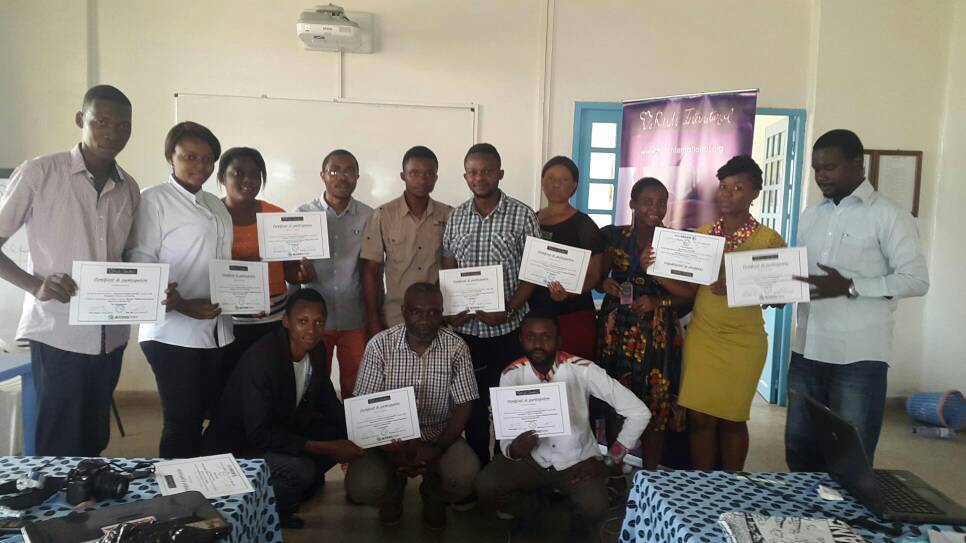Between September 2017 and June 2018, we conducted a series of digital security training and awareness in two cities in the Democratic Republic of Congo (DRC). Thanks to the support of the Access Now grants program, a total of up to 30 human rights activists, bloggers, civil society leaders went through our digital security training curriculum.
The training aimed at equipping these civil society leaders on the latest safety tools to support their work and help them keep their privacy in a society where Internet freedom violations are increasingly present. Many of our participants have either seen their online communications intercepted or being questioned for what they have said on social media.
As a preparation for the general elections scheduled to start in December 2018, our training covered topics such as :
- Email encryption
- Using secure mobile apps
- Protecting their online communication platforms through using strong passwords and using password managers
- Protecting their devices against malwares, viruses, etc
- Enabling two factor authentication on Gmail as well as on Facebook
- How to circumvent Internet shutdown by using apps such as VPNs, etc.
Participants in Kisangani and Lubumbashi gathered for a five days training each (between September and December 2017), which was followed by online discussions, encouraging each participant to practice some of the tools and apps they learned. The online discussion also helped participants ask questions to the trainers and receive real time support on troubleshooting issues.
Follow up sessions were then conducted later on in both cities (between January and June 2018) where participants were also introduced to the ICT policy landscape and the Internet governance ecosystem. They were then introduced to the policy making process and had the opportunity to understand the DRC policy landscape.

As a result of these efforts, participants reported now being cautious about their online security and some shared the following :
« I now know how to create a strong password and how to no longer worry about memorizing it. I am able to use the password manager that best suits me and store all my different passwords for all my online websites and devices », said Costa, a male blogger in Lubumbashi.
« I used to have my laptop available for anyone to use it but after this training, i now know that i should not because anyone can then install surveillance apps in there and be able to track all my work. I also now protect my laptop with strong password », said Judith, a female film maker in Lubumbashi.
« As a medical doctor, i did not know how to best secure my patients data until i discovered that i can create a virtual disk and keep confidential data in there that i can access through cloud from whichever desk i am using », said Querida, a female medical doctor and civil society activist in Kisangani.
At the end of these series of training, we agreed with the participants that everyone who uses the Internet or a computer needs to be introduced to a basic digital security training because we all can be vulnerable somehow. We are therefore look forward to more opportunities to offer these training all over the country so that people can get ready for the upcoming elections.
« Once you are trained, you need your friends and workmates to also be trained so that you are all secured. You cannot start using encrypted emails if your friends with whom you communicate do not. We encourage Rudi International to conduct more of these training in schools, offices so that everyone is aware of potential risks they may face while online », said Junior, a male participant in Lubumbashi.
« But I have personally decided to do my part in training my colleagues and the clients that are coming to learn basics of computing at our training center in Lubumbashi », Junior concluded.
In May 2018, Arsène Tungali, our Executive Director was part of a panel discussing digital security training in Africa at RightsCon 2018 in Toronto, Canada. He had the opportunity to share our perspectives, the challenges we faced as well as best practices that can help other trainers to better conduct their digital security training.
If you want to learn more or partner with us in these efforts, please do not hesitate to reach out.


Published by